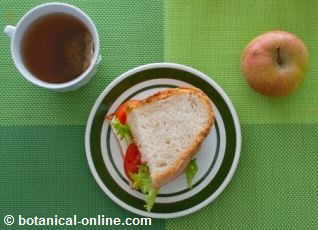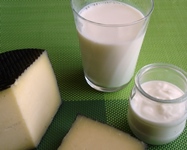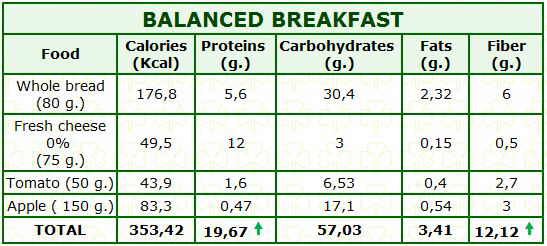Contents
What to eat for breakfast
What is a balanced breakfast?
 As we age, it is normal for our hair to turn gray
As we age, it is normal for our hair to turn grayAccording to the World Health Organization (WHO), a balanced breakfast is one that contains the three food groups recommended for breakfast. These food groups are:
– Grains, preferably whole without added sugar
– Fresh fruit or natural juice
– Skimmed milk or other source of protein and calcium
Breakfast Calories
The calories breakfast should provide vary depending on the age, sex and metabolism of each person.
In general, it is recommended a breakfast input of about 400 calories, which are usually distributed in a meal after waking up and another one at mid-morning snack.
BENEFITS OF A COMPLETE BREAKFAST
 Photo of milk, cheese and yogurt
Photo of milk, cheese and yogurtThe health benefits of a good breakfast are:
– Breakfast provides the energy to wake up and get going
– People who eat breakfast have higher performance, better concentration at work or school, and they are healthier than people with weight unbalanced breakfast.
– Breakfast provides satiety and makes us not eat anything between hours
– It prevents to develop a ravenous hunger for lunch
– Skipping breakfast is associated with obesity.
– Breakfast evil relates to attention deficit and hyperactivity in children.
– Even more important is to eat a good breakfast in the different stages of child development, because the task of growing requires a lot of calories.
– In case of childhood obesity, one should not leave having breakfast properly.
Is there a need to drink milk for breakfast?
There is some controversy about the use of milk in the diet. Recently, in 2012, Harvard University has published a guide to healthy eating called ” Healthy Eating Plate”, which highlights the absence of the milk group.
There is no need to take milk in case of having a diet rich in calcium. Other foods rich in this mineral are beans, carrots, dried fruit, nuts and seeds, especially sesame seeds.
In fact, one of the most important and least discussed factors that must fulfill a calcium-rich diet is that the overall diet is calcifying. That’s to say, it has to provide many alkalizing minerals such as magnesium and calcium, and phosphorus should not be excessive (abundant in animal proteins).
Drinking plenty of meat in a diet without milk, can cause bone problems in adulthood because it is decalcifying. This is demonstrated by epidemiological studies that have looked at how a diet rich in plant proteins, little animal flesh and dairy free, does not cause problems of osteoporosis .
For these reasons, people who can not take milk or milk derivatives because of intolerance or allergy, can also get a healthy diet rich in calcium. It is recommended to see a doctor and nutritionist.
An example of a balanced breakfast
This example suggests:
– Vegetarian sandwich with whole wheat bread and cheese 0 % fat
– Infusion of green tea (tea is stimulating, although less than coffee, because it has less caffeine. Moreover, the caffeine in tea is gradually absorbed)

![]() More information on nutrition.
More information on nutrition.








